
In a live music venue hidden in a basement in Fortress Hill, a mainly residential area on Hong Kong Island, a group of schoolboys and a few middle-aged men have gathered in the dark. With glow sticks in their hands, they are waiting for young Hong Kong women who have styled themselves as Japanese idols to come on stage, as a violet spotlight sweeps across the modest venue.
Even before the music begins, the idol fans – often referred to as wotaku – are jostling for position near the front of the stage so they can be close as possible to their favourite performers. Others, perhaps less dedicated or more shy, have moved to the sides to make room for the wotaku’s wotagei, a ritualistic dance the most devoted wotaku perform in support of their idols.
The underground idol scene in Hong Kong emerged around seven to eight years ago and is much smaller than similar scenes in Taiwan and Japan, says Kana Cheung, manager of idol trio Cotton Candy. Hong Kong’s idol movement was more of an “underground” scene, she explains, as the performers did not publicise their shows and each only had a few dozen exuberant fans.
Apart from their costumes and the culture they have adopted, there is nothing Japanese about the Hong Kong idols. Most don’t even speak much Japanese. But they still face the same suspicions as their Japanese counterparts – that idols sell sex and mainly perform for socially awkward boys and men.
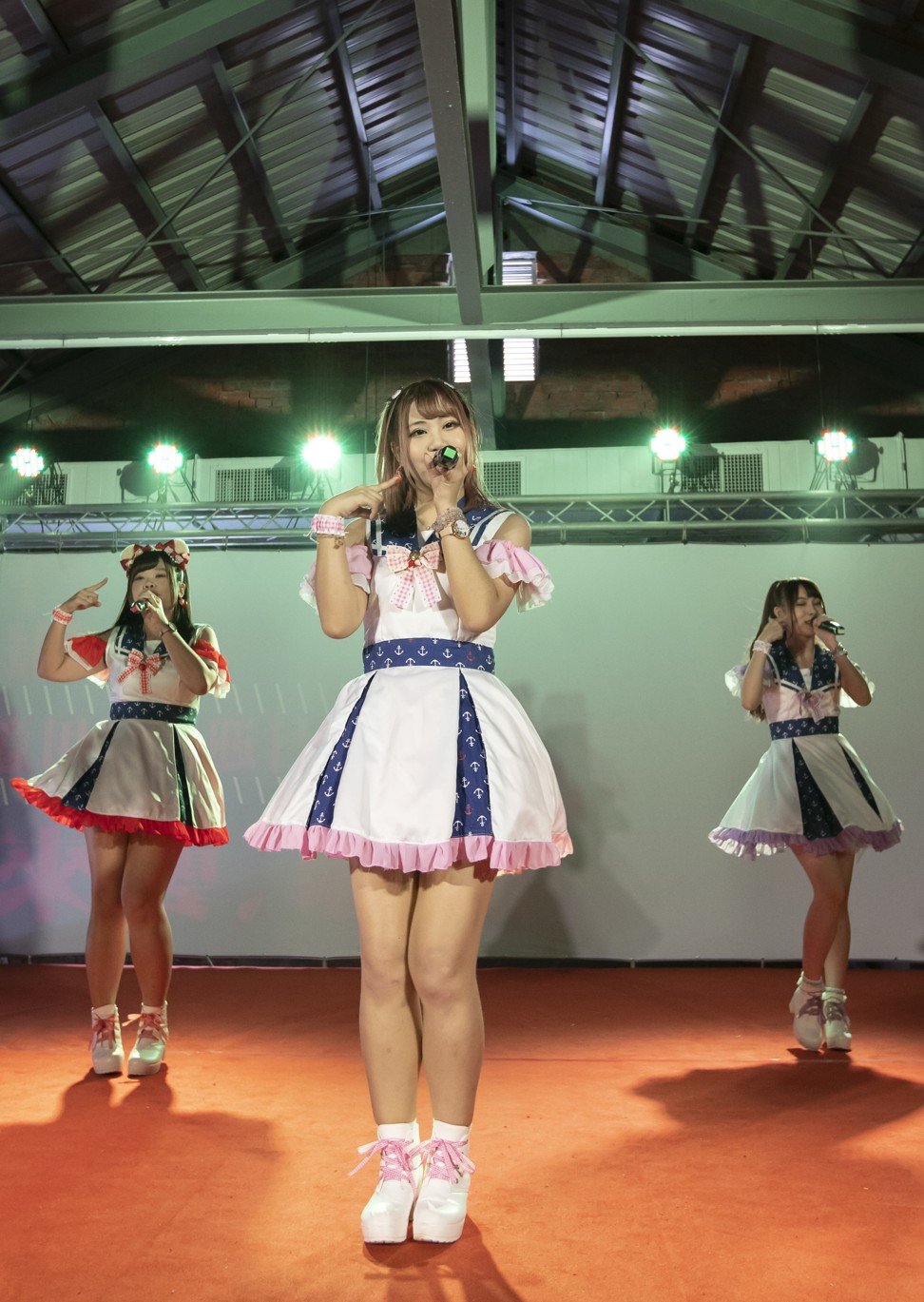
None of this bothers the wotaku, who appear electrified when the performers step on stage. Their idols, all in their teens or 20s, wear costumes inspired by anime and anthropomorphised animals. Unlike the mainstream idols in Japan, most underground idols in Hong Kong are hobbyists and are not professionally managed.
Despite not having rehearsed beforehand, the wotaku have formed a circle and are dancing in synchrony, swaying their heads and swinging their arms as Japanese music blasts out of the speakers. They learned the standard wotagei moves on YouTube, where wotaku from Japan to Taiwan publish instructional videos.
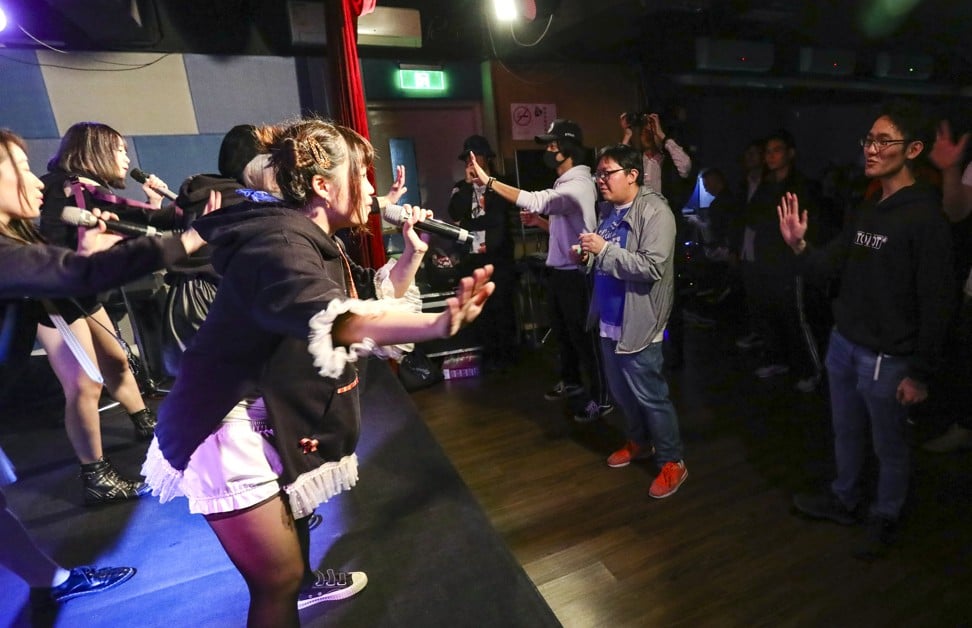
A large part of an idol’s job involves forming emotional connections with their fans. Industry norms forbid idols from chatting and meeting privately with fans, says Yuki, who has been a solo idol for about three years. So fans make use of buppan – meet-and-greet sessions where merchandise is sold.
“Each fan has 90 seconds to chat with us, and they can’t touch us,” Aki, a member of Cotton Candy, says while signing a Polaroid that cost a fan HK$60 (US$8). “Usually they talk about work, their ups and downs, what games and anime they have enjoyed recently.”
Aki and other idols adopt Japanese stage names and anime-influenced personalities. Yuki says her character is a little devil born 958 years ago. She refuses to reveal her actual age, but says she is older than 18.
“The character is what I want to be. I like to act cute with my fans,” says Yuki, who is wearing double ponytails and a red Santa skirt for a December performance.
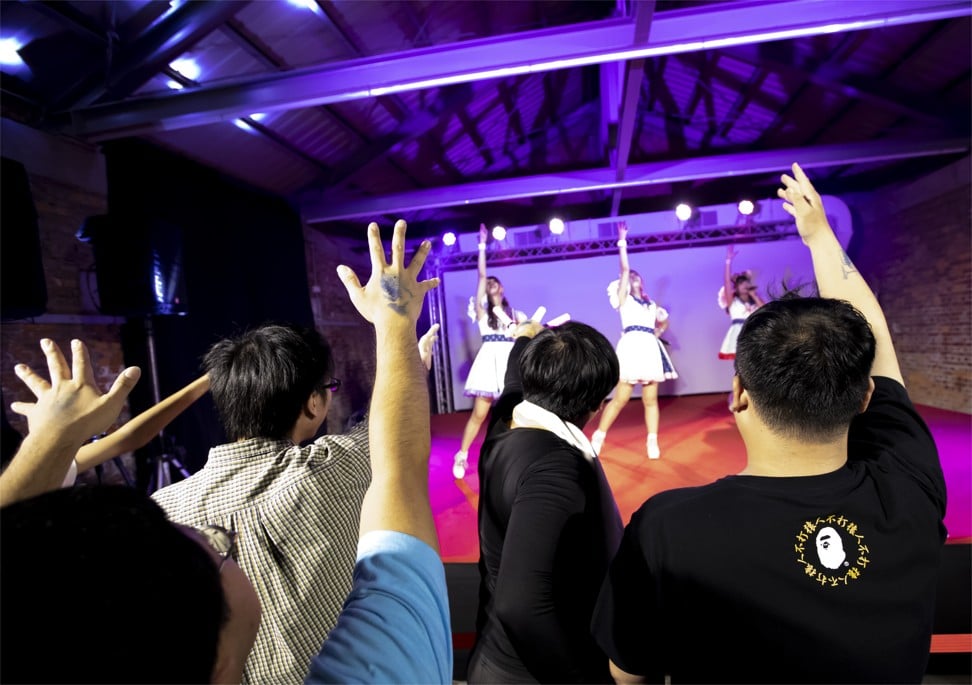
The idol subculture is often seen to be about selling sex, not least due to the idols’ young age and characteristic short skirts. The industry has taken a toll on some mainstream idols in Japan – Minami Minegishi of idol girl group AKB48, for example, shaved her head and published a teary apology in a YouTube video after it was revealed she was dating.
Idol groups in Japan also hold akushukai – meet-and-greet sessions where fans can chat and shake hands with the girls for a few seconds. Security guards have had to pull away some enthusiasts who refuse to let go of their idols’ hands, fuelling a perception that some fans are overly obsessive.
People see [idols] through a biased lens. They don’t see it as art. That’s their problem. Idols just need to be themselves. Even if they cover themselves up there will still be haters - Airi Risu of Hong Kong idol group Forest Story
However, Shiori Kitsune, a member of the four-piece Hong Kong idol group Forest Story, says only people who do not understand the scene think this way.
“They might not have watched an idol show. They might not have visited or liked an [idol’s] Facebook page,” she says after a recent performance.
Aira Risu, another member of Forest Story, says: “When a woman dresses up and looks beautiful, she will often have to deal with unpleasant comments. Women in most [lines of work], be it photography or performance, face this issue. It’s hard to change this, but society will progress.”
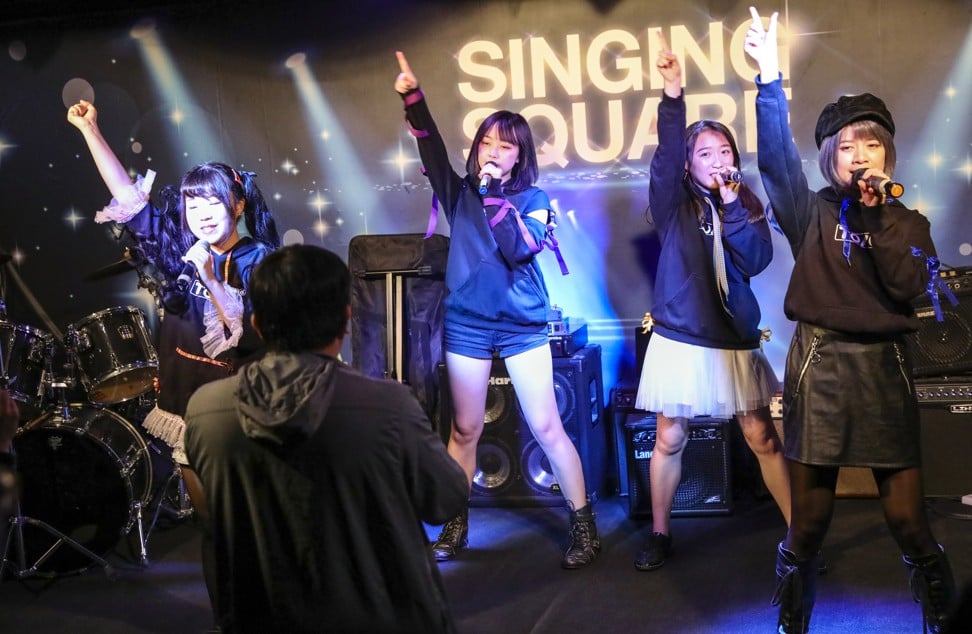
The sexualisation of underground idols does not bother Anthony, 23, a fan who says he has entered “another world” since discovering idol groups in his first year of secondary school.
“Sometimes, girls dress sexy to present their best side to others. Girls care about their appearance. They aren’t doing anything wrong by wearing skimpy clothes,” says the sales coordinator.
“But some people see them through a biased lens. They don’t see it as art. That’s their problem. Idols just need to be themselves. Even if they cover themselves up there will still be haters.”
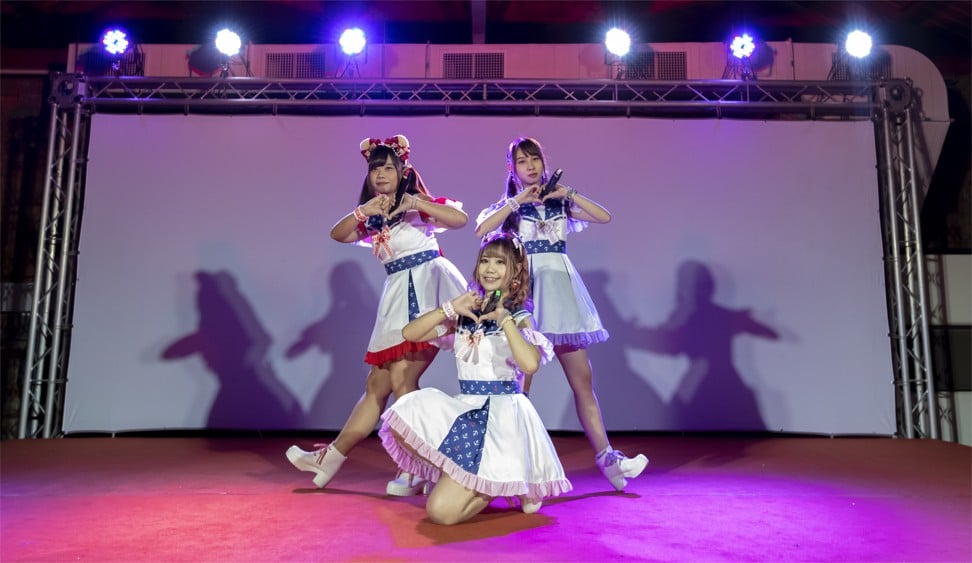
Although idols and fans say the subculture is not about sex, an idol’s appearance is nonetheless important to the underground scene in Hong Kong. Gordon Kam, an organiser of idol events, says most photos that idols post online are Photoshopped and filters are applied to live streams in which idols chat with their fans.
Fans support their idols not so much for their appearance and talent, but for their personalities and down-to-earth exchanges with fans, Kam says.
At a Forest Story show, fans cheer and dance with the animal-themed group, not bothered by the coarse voice of Hitomi Usagi, who says she is ill.
“This isn’t out of tune. This is the voice of a rabbit,” group leader Shiki Neko says jokingly, referring to Hitomi’s rabbit character she adopts on stage.
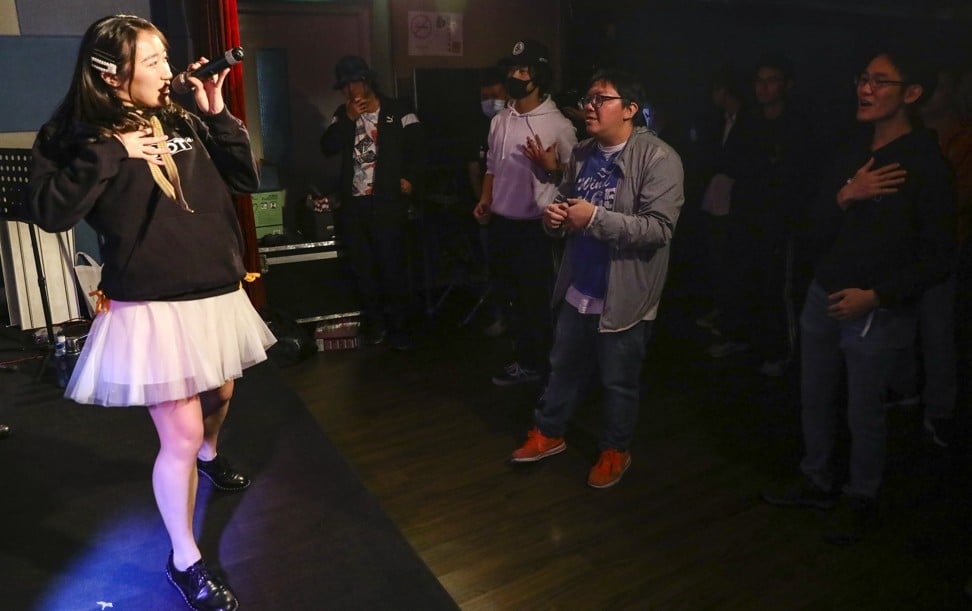
Still, when an idol group attempts to go mainstream, their appearances can make or break them. Asterisk, an idol group made up of six schoolgirls, disbanded less than three months after their debut when a local media report generated an online backlash over the girls’ looks, Kam says.
Many fans of underground idols prefer that the performers stay underground as they want to maintain a close connection, Anthony says.
“It doesn’t matter if no one really knows us,” Anthony says of idols and their fans. “We just need to be ourselves and do what we want to do.”







